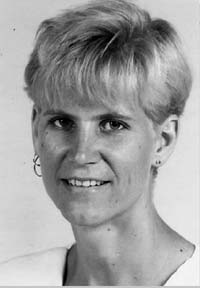Of the more than 13,000 health care providers who are members of the American Academy of Otolaryngology-Head and Neck Surgery,1 exactly three of them officially practice holistic otolaryngology as members of the American Holistic Medical Association, which itself is only about 1,000 members strong and just now entering its 30th year.2 These three physicians see many of the same ear, nose, and throat complications in their patients that their nonholistic colleagues see: tinnitus, allergies, sinusitis, and so on. All certified by the American Board of Otolaryngology, they have taken the same basic training and met the same requirements as their peers.
Explore This Issue
April 2008A major component that sets them apart, however, is that they often employ alternative therapies. For example, Benjamin F. Asher, MD, who runs a solo practice in New York, uses osteopathic manipulation for pain problems of the face, head, and ear. Robert J. Sciacca, MD, the founder of Alabama ENT Associates in Birmingham, occasionally performs acupuncture for treatment of chronic pain, ENT disorders, and tobacco addiction.
But a shared philosophy of having an open mind and of considering the whole person, not just the otolaryngological ailment, is the defining trait of these holistic otolaryngologists. The practice of holistic medicine is more of a mindset than a set of procedures, explained Jennifer H. Judkins, MD, of Upper Valley Medical Group in Lebanon, NH.
Philosophy and Practice
Conventionally trained in surgical treatment of the head and neck, Dr. Judkins said, I have, over the years, developed an understanding that most disease processes are best approached by looking at a much bigger picture. The effects of diet, mood, spirituality, family, culture… really need to be addressed when treating patient problems, particularly those that are challenging diagnostically.
Dr. Judkins has a specific interest in nutrition and its relationship with pathology. After her residency in otolaryngology, she spent several years treating ear problems in the Navajo population of Shiprock, NM. She noted the exceptionally high incidence of type 2 diabetes among the children of the community-and also the drastic change from a formerly agrarian culture to a more urbanized landscape, and the new presence of fast food. She pursued this interest more formally by attending nutrition conferences and taking online courses. But rather than abandon otolaryngology for nutrition, she instead incorporated nutrition as a form of potential therapy in her otolaryngology practice. She encourages patients with allergies and chronic sinusitis to follow an elimination diet-cutting out trans fats, vegetable oils other than olive and canola oils, and processed foods, such as white breads, rice, and pasta-to minimize inflammation. She often also recommends omega-3 supplements and five to nine daily servings of fruits and vegetables to these patients.

Leave a Reply